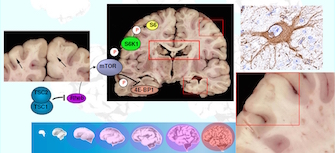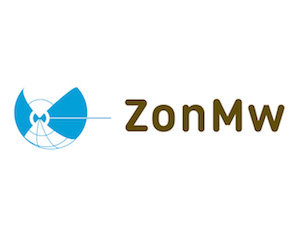
Tuberous Sclerosis Complex (TSC) is an autosomal dominant disorder. TSC is characterized by benign tumors in the brain, kidney, heart, eyes, lungs and skin. Lesions in the brain, which includes cortical tubers and white matter abnormalities, are common and cause great problems for the patients and their families. TSC patients show mild learning disabilities to severe mental retardation. Epilepsy seizures occur in 75-90% and infantile spasm in up to 50% of the TSC patients; often starting in the first year of life. Early interventions can help to prevent developmental delays. Although most TSC patients live a normal life span, complications in some organs can lead to serious problems and even death. The estimated birth incidence is 1 in 6,000.
TSC is caused by inactivating mutations in the TSC1 or TSC2 gene. Only one-third of the TSC patients inherited a mutation from one of the parents. The other TSC cases result from spontaneous genetic mutation during very early development of the embryo. Studies indicate that the pathophysiology of TSC may relate to abnormal GABA-ergic inhibition in the brain. However it is still unclear how neurological abnormalities in TSC patients develop.
In collaboration with Prof. dr. E.M.A. Aronica (Academic Medical Center Amsterdam), we generate iPS cells from TSC patients and study functional changes in GABA-ergic properties and neuron-oligodendrocyte interactions, to get more insight into the neurological problems TSC patient develop.
2026 © iPS Center. All Rights Reserved. Privacy Policy | Terms of Service

